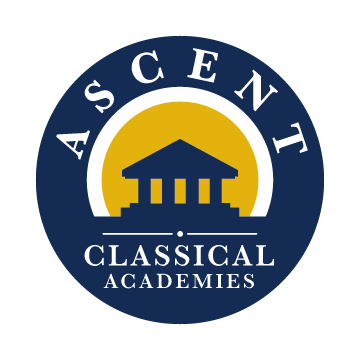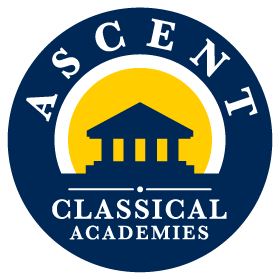 Many parents look at a classical curriculum and instinctively focus on one or two aspects – high school literature and Latin. Precisely because these two areas of study are so peculiar in a classical school, they garner the most attention. Students in typical public schools rarely read the Iliad or Shakespeare’s tragedies with the care and intellectual energy that we demand of our students, and likewise Latin is almost never seen as useful or beautiful. And, it is true, these two parts of our curriculum will set us apart from and above many other schools. But even more fundamentally, and perhaps more importantly, the great advantage that classical education wields over all other alternatives lies in early elementary. There, students not only form the habits of successful students and learn the virtues required by a republic like ours, but they learn to read.
Many parents look at a classical curriculum and instinctively focus on one or two aspects – high school literature and Latin. Precisely because these two areas of study are so peculiar in a classical school, they garner the most attention. Students in typical public schools rarely read the Iliad or Shakespeare’s tragedies with the care and intellectual energy that we demand of our students, and likewise Latin is almost never seen as useful or beautiful. And, it is true, these two parts of our curriculum will set us apart from and above many other schools. But even more fundamentally, and perhaps more importantly, the great advantage that classical education wields over all other alternatives lies in early elementary. There, students not only form the habits of successful students and learn the virtues required by a republic like ours, but they learn to read.
Don’t all students learn to read? The answer to this simple question must be a resounding no. Students often arrive in 6th and 7th grade unable to read aloud in the class, having developed a shyness that results from never having learned to read properly. Worse yet, they come to have difficulties in every subject they study, since the one ability on which every aspect of education relies is the ability to read. Homework piles up, As become Bs, Bs become Cs, and students learn that school is not only boring but positively uncomfortable and burdensome.
How, then, do our classical schools differ? How do we remedy this glaring shortfall of our education system? We teach students to read by building the two main pillars of literacy – explicit phonics and background knowledge. All future reading rests on these two pillars, which is why the K-3 grades are so crucial to a student’s overall success. The ability to read begins in earnest in Kindergarten, develops at breakneck pace through 1st and 2nd grade, and should be almost completely set in 3rd grade. Parents who have students in any of these grades are therefore in an ideal position to reap the most benefits from a classical education.
What is explicit phonics and how does it work?
 Explicit phonics means that we teach students the relationship between symbols and sounds in the English language. In typical public schools students learn some blend of incomplete phonics and whole word lists. But, if a student memorizes a spelling list, then at the end of all her hard work she will know no more than the words on the spelling list. The ability to generalize does not develop, since every word is treated as its own unit, rather more like hieroglyphics than our English language. Because English is a mix of many languages – principally Anglo-Saxon, German, French, Latin – trying to generalize spelling rules without learning them explicitly is a recipe for failure. Students who do not do study explicit phonics in the early years can make due for awhile, since students can memorize long lists of things. But at some point, typically in 4th or 5th grade, memorization for spelling no longer suffices, and students are left behind.
Explicit phonics means that we teach students the relationship between symbols and sounds in the English language. In typical public schools students learn some blend of incomplete phonics and whole word lists. But, if a student memorizes a spelling list, then at the end of all her hard work she will know no more than the words on the spelling list. The ability to generalize does not develop, since every word is treated as its own unit, rather more like hieroglyphics than our English language. Because English is a mix of many languages – principally Anglo-Saxon, German, French, Latin – trying to generalize spelling rules without learning them explicitly is a recipe for failure. Students who do not do study explicit phonics in the early years can make due for awhile, since students can memorize long lists of things. But at some point, typically in 4th or 5th grade, memorization for spelling no longer suffices, and students are left behind.
At our school, students do not learn whole words in isolation. Rather, they acquire the tools to decode any word in the English language, even words they have never seen before. They learn, for instance, that the letter A has 4 main sounds, and that in certain circumstances A will sound like “glad” and in others like “glade,” in others like “gall” or “walk.” Explicit phonics instruction develops in tandem with handwriting, since students learn to hear, to say, and to write phonemes at the same time. Kindergarteners, whose writing is often illegible, come to express themselves with a care and neatness that rival students 2 or 3 grades above. It isn’t easy, of course, but the hard work in the early years pays dividends later.
Background Knowledge
Along with explicit phonics, we will develop students’ background knowledge, which is the other pillar of solid literacy. What is background knowledge and how do we develop it? Background knowledge is not fancy – it is simply knowing a lot. The end, of course, is not to know a lot of trivia, but to use what one knows to make good judgments, to think independently, and to have access to the rich heritage of pioneering thinkers and writers of the past. No amount of “critical thinking skills” helps a student answer the question, “is America repeating the mistakes of Rome?”, unless the student knows quite a bit about both America and Rome. No one can understand the Gettysburg Address, or the great calamity of the Civil War, without knowing the importance of what happened “four score and seven years ago.”
At our schools we implement a content-rich curriculum called Core Knowledge, not to be confused with Common Core. Core Knowledge teaches real history and geography instead of watered down social studies, has students explore real literature and poetry instead of plodding through dull “readers,” and develops an awareness of scientific concepts, procedures, and ways of thinking. The Core Knowledge curriculum, which cuts no corners in its rigorous content, is simply the best available.
With these two pillars solidly in place, students at our school will have access to the richest tradition of thinking the world has ever known. Our mission is to train the minds and improve the hearts of young people. There is no better place to begin than in the early elementary years with a solid literacy program like ours.
– Dr. Robert Garrow, Principal, Golden View Classical Academy

